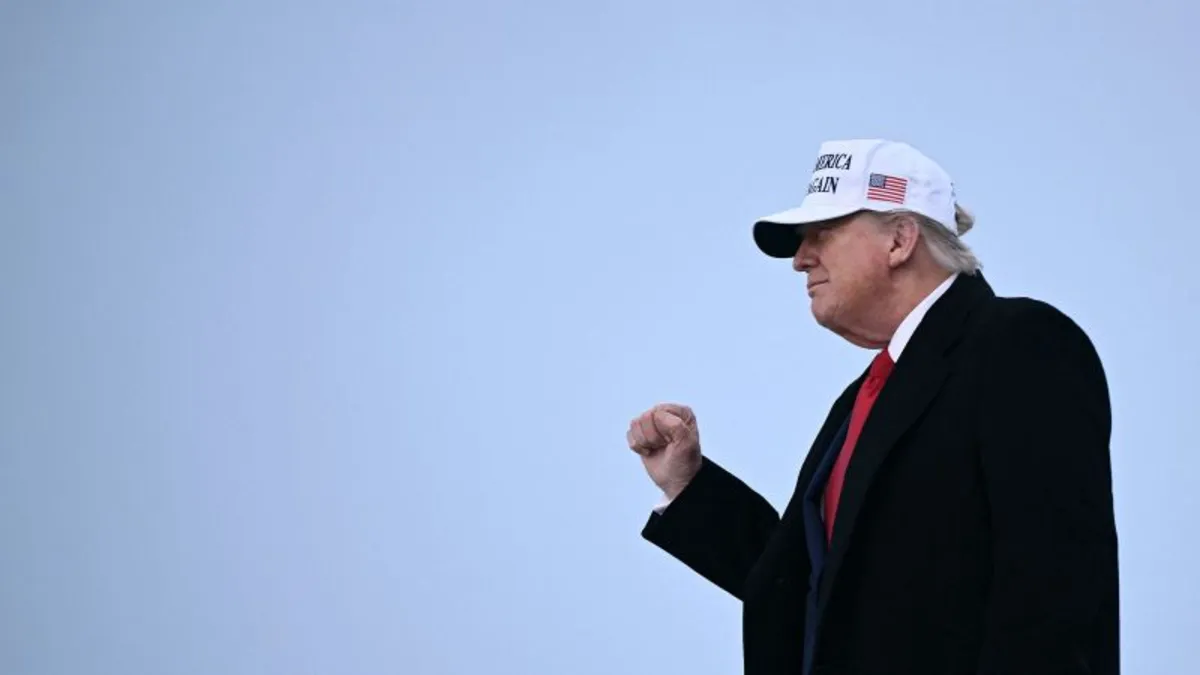
President Donald Trump has initiated a two-week negotiating window before making a crucial decision regarding a potential military strike on Iran. This decision comes in the wake of an escalating situation following Israel's recent bombing campaign, which has heightened fears of a broader conflict in the region. Trump's administration hopes that the ongoing Israeli attacks, combined with losses to Iran's missile capabilities, may lead Tehran to reconsider its previously rigid stance on key issues, including the controversial enrichment of uranium.
The decision to delay a military strike allows Trump additional time to evaluate the potential repercussions of such an action. Engaging in military conflict could entangle the United States in a long-term foreign war—something Trump has vowed to avoid. This cautious approach is underscored by Trump's recent comments suggesting a preference for diplomatic solutions, despite the military options at his disposal. Press Secretary Karoline Leavitt emphasized this point, stating, “The president has made it clear he always wants to pursue diplomacy. But believe me, the president is unafraid to use strength if necessary.”
Efforts to restart diplomatic talks have encountered significant hurdles. Discussions within the White House had considered sending Middle East envoy Steve Witkoff and Vice President JD Vance to Iran for negotiations. However, as tensions escalated, these plans were shelved, leaving both officials in Washington. Meanwhile, foreign ministers from Britain, Germany, and France are set to meet with Iranian representatives in Geneva, although expectations for a breakthrough remain low.
Iran's stance has been clear: they will not engage in further discussions with the US until the ongoing Israeli military operations cease. This hardened position complicates the diplomatic landscape, especially as the US has refrained from pressuring Israel to halt its strikes. Trump has reportedly encouraged Israeli Prime Minister Benjamin Netanyahu to continue these operations, a move that may further alienate Iranian officials.
Despite the lack of formal talks scheduled, the Trump administration is still exploring diplomatic avenues. Witkoff has been in communication with Iranian Foreign Minister Abbas Araghchi, discussing proposals that would require Iran to ultimately cease all uranium enrichment. As negotiations proceed, the White House maintains that a ban on Iranian uranium enrichment remains a critical component of any final agreement.
European leaders, who are keen on fostering a diplomatic solution, are wary of the ongoing risks posed by Iran's nuclear program. They believe that even amidst military strikes, Iran's nuclear capabilities and knowledge persist, which could lead to clandestine projects that military action cannot eliminate.
Many US diplomats outside of Trump's inner circle have reported a lack of clear guidance regarding diplomatic efforts, leading to confusion and frustration among allies. As the administration navigates this complex landscape, Secretary of State Rubio has been actively involved in discussions with European counterparts, emphasizing the importance of preventing Iran from acquiring nuclear weapons.
As Trump continues to assess military options, he remains cautious of the long-term implications of any action against Iran. The next two weeks will be critical in determining whether diplomatic efforts can yield a resolution to the ongoing tensions, or if the situation will escalate further into conflict.